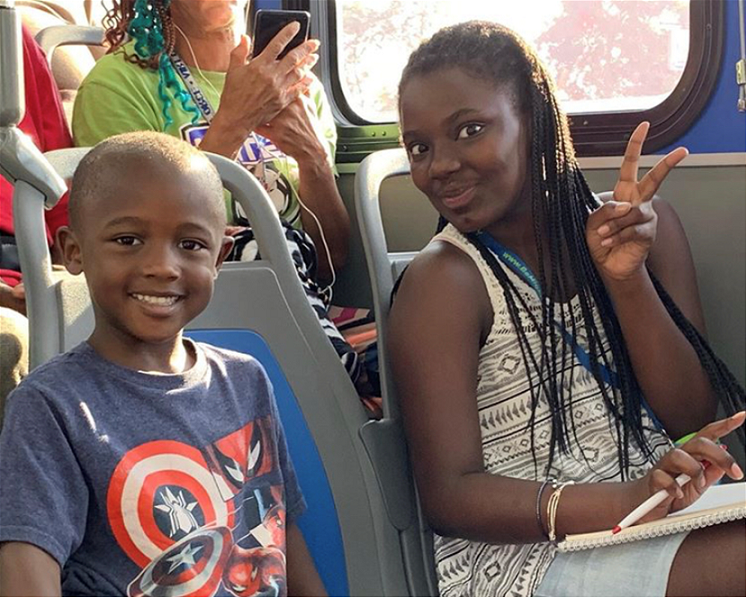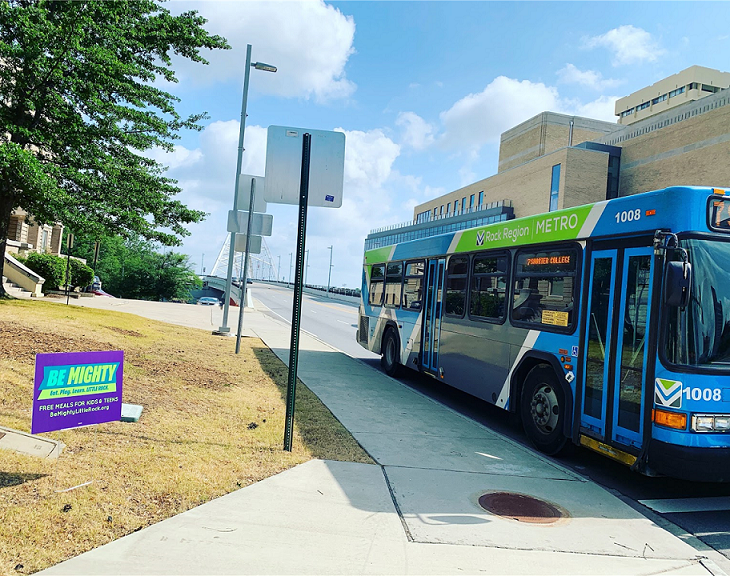Tackling Children’s Food Insecurity with Community Partners
Originally written and published on 15 May 2023 to LinkedIn by Lucille Windsor, a Public Library Sales Consultant focusing on OCLC Wise, a community engagement system.

The Central Arkansas Library System (CALS) in Little Rock, Arkansas, adopted a strategic plan in 2019 to help identify and eliminate barriers faced by people throughout the communities they served. Nate Coulter, Executive Director of CALS, recently explained to me, “We took a look at things we were and weren’t yet doing to help.”
CALS didn’t have to wait long to find a difference-making opportunity. The City of Little Rock had been simultaneously exploring grant opportunities to help feed underserved children in the local area. They contacted CALS as it’s already known as a safe and reliable place for many kids. CALS, in partnership with city directors and the Arkansas Hunger Relief Alliance, won a National League of Cities grant to initiate the project.
Turning library partnership idea into reality
These partnerships allowed Nate and team to collaborate and learn—without the need to figure out and fund everything on their own. Nate told me he had never really understood how the USDA reimbursement for meals program functioned (another source of financial support) prior to being involved with the program. Together, they partnered with vendors and feeding site sponsors to supply lunch to those who qualify. From there, CALS launched Be Mighty, a citywide program designed to encourage faith-based and local groups to expand the number of “feeding sites” around the city, including those at eight libraries.
Once the pieces came together, they hired a full-time library employee to build out the program. However, the team soon found a key gap in the program. “We had to overcome the barriers to transportation for many of our program participants. Many children and their caregivers couldn’t get to the sites,” said Nate.
Using a grant through the National Recreation and Park Association, CALS connected with Rock Region METRO in 2019 to purchase 1,200 bus passes that offered unlimited rides anywhere participants needed to go. “During that time frame, there were more than 6,700 rides taken using those passes,” said Nate. “People told us that the unlimited passes were great, because they could get their kids to the library to get books and meals and take them to visit grandparents and shopping at the grocery. There were a lot of unexpected benefits we didn’t anticipate.”
Another gap came with the inability to feed caregivers with meals paid for through the USDA program. But often the parent or guardian bringing a child to a meal distribution is also hungry. “CALS raises funds to purchase shelf-stable meals for caregivers, which helps draw more kids. There’s a great opportunity to lean on [your library’s] credibility and community trust without an agenda. You can create opportunities to promote community responses to challenges.”
Continued program evolution needed
The success of the program led to plans to continue it in 2020, but the COVID-19 pandemic called for a change in strategy. CALS staff reimagined things a bit and called the program “Rides to Read” with very few restrictions.  However, the lack of restrictions created some headaches with grant stipulations, leading CALS to wind down the program and restart it again last year with tighter requirements for eligibility.
However, the lack of restrictions created some headaches with grant stipulations, leading CALS to wind down the program and restart it again last year with tighter requirements for eligibility.
I was struck hearing Nate’s story and the ingenuity he and his team had to continue to adapt the program to satisfy grant restrictions while still feeding children. In this spirit, August 2022 marked the current rebranding of the program—Be Mighty METRO. While the program now looks a little different out of necessity, the goal remains the same—feeding kids in need. Today, CALS meets the growing community need at 11 community feeding sites and ten Little Free Pantry locations in the Little Rock metro area. “Since we started this program back in 2019, the number of participants has tripled,” Nate said.
Commitment to remove community barriers
The Be Mighty METRO program is just one example of how CALS is committed to removing barriers for its community. For example, the team recently partnered with the City of Little Rock to create safe access to the library from a neighboring city park on the other side of the freeway.
“We fostered great relationships with City [of Little Rock] officials as we built what’s now Be Mighty METRO. So, we brought this opportunity to their attention. Our previous work together made it easier, as we had proven our credibility as a partner.”
These efforts highlight the power of strategic partnerships. And why we shouldn’t underestimate the critical role libraries can play in partnering to meet the needs of their communities.
Photos provided courtesy of Central Arkansas Library System.
For more community engagement inspiration, please visit our hub at oc.lc/community-engagement.
Community engagement
Where do you go for inspiration? Invigorate your community engagement efforts with advice from library leaders.
